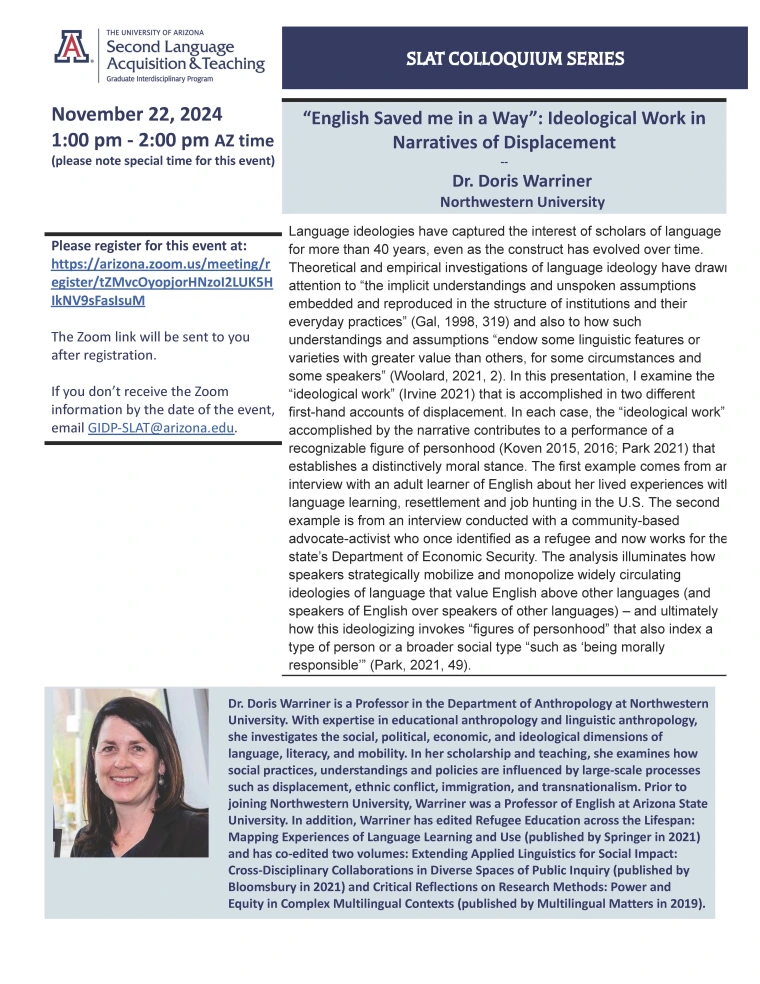“English Saved me in a Way”: Ideological Work in Narratives of Displacement
Language ideologies have captured the interest of scholars of language for more than 40 years, even as the construct has evolved over time. Theoretical and empirical investigations of language ideology have drawn attention to “the implicit understandings and unspoken assumptions embedded and reproduced in the structure of institutions and their everyday practices” (Gal, 1998, 319) and also to how such understandings and assumptions “endow some linguistic features or varieties with greater value than others, for some circumstances and some speakers” (Woolard, 2021, 2). In this presentation, I examine the “ideological work” (Irvine 2021) that is accomplished in two different first-hand accounts of displacement. In each case, the “ideological work” accomplished by the narrative contributes to a performance of a recognizable figure of personhood (Koven 2015, 2016; Park 2021) that establishes a distinctively moral stance. The first example comes from an interview with an adult learner of English about her lived experiences with language learning, resettlement and job hunting in the U.S. The second example is from an interview conducted with a community-based advocate-activist who once identified as a refugee and now works for the state’s Department of Economic Security. The analysis illuminates how speakers strategically mobilize and monopolize widely circulating ideologies of language that value English above other languages (and speakers of English over speakers of other languages) – and ultimately how this ideologizing invokes “figures of personhood” that also index a type of person or a broader social type “such as ‘being morally responsible’” (Park, 2021, 49).
Dr. Doris Warriner is a Professor in the Department of Anthropology at Northwestern University. With expertise in educational anthropology and linguistic anthropology, she investigates the social, political, economic, and ideological dimensions of language, literacy, and mobility. In her scholarship and teaching, she examines how social practices, understandings and policies are influenced by large-scale processes such as displacement, ethnic conflict, immigration, and transnationalism. Prior to joining Northwestern University, Warriner was a Professor of English at Arizona State University. In addition, Warriner has edited Refugee Education across the Lifespan: Mapping Experiences of Language Learning and Use (published by Springer in 2021) and has co-edited two volumes: Extending Applied Linguistics for Social Impact: Cross-Disciplinary Collaborations in Diverse Spaces of Public Inquiry (published by Bloomsbury in 2021) and Critical Reflections on Research Methods: Power and Equity in Complex Multilingual Contexts (published by Multilingual Matters in 2019).
Student Moderator: Asya Gorlova, 4th-year SLAT PhD Candidate


